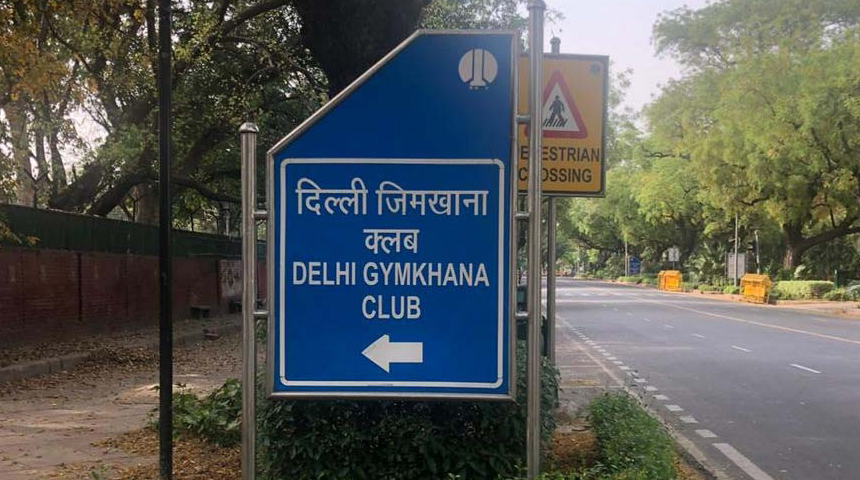Aastha Pareek
The Delhi High Court on Friday 18th October 2024, declined to stay the termination of ‘Green Card‘ privileges for the children of members of the Delhi Gymkhana Club in the case Children of Gymkhana Club Members v. Gymkhana Club. The case revolves around the club’s controversial decision to withdraw ‘Green Card‘ rights that have traditionally allowed children of long-standing members to access club facilities and privileges without acquiring full membership status.
The petitioners, children of various prominent members of the club, approached the court seeking a stay on the club’s decision, arguing that the ‘Green Card‘ system had been a long-standing practice and formed an essential part of the privileges afforded to families of club members. They claimed that the termination of these rights not only disrupted their access to the club but also breached established norms and previous commitments made by the club regarding their ongoing membership status.
A division bench, composed of Justice Subramonium Prasad and Justice Manmeet Pritam Singh Arora, presided over the case. The petitioners, represented by senior counsel, argued that the ‘Green Card‘ status had historically been granted to the children of members as a means of preserving family ties within the club and ensuring continuity of membership across generations. They asserted that the revocation of these privileges was arbitrary, unjust, and contrary to the very essence of the club’s founding traditions. Further, they claimed that the sudden withdrawal of ‘Green Card’ rights had caused significant inconvenience and emotional distress to the affected individuals.
During the proceedings, the court closely examined the arguments put forth by the petitioners and the club’s management. Counsel for the Gymkhana Club strongly defended the decision to revoke ‘Green Card‘ rights, maintaining that these cards were always intended to be temporary in nature and did not confer permanent or inherited membership privileges. They emphasized that the issuance of ‘Green Cards’ was subject to the discretion of the club’s governing body, and there was no legally binding obligation to extend these privileges indefinitely.
Justice Prasad, delivering the bench’s ruling, noted that while the petitioners had indeed enjoyed access to the club’s amenities through the ‘Green Card‘ system for an extended period, the court could not intervene at this juncture unless a clear violation of legal rights was established. In a detailed observation, Justice Prasad stated, “The petitioners have not been able to demonstrate a legal right to the continuation of ‘Green Card’ privileges that would warrant the court’s interference. This system appears to have been a matter of club policy rather than a contractual right, and the court cannot micromanage the internal policies of a private institution without a clear case of legal transgression.”
Justice Prasad further explained, “A private club, such as the Gymkhana, operates under its own rules and regulations, and the court is disinclined to intervene in policy decisions unless they are arbitrary, discriminatory, or in violation of statutory norms. In the absence of such evidence, no irreparable injury can be assumed merely from the withdrawal of privileges.”
Justice Manmeet Pritam Singh Arora concurred with Justice Prasad, adding that while the petitioners may have emotional or sentimental attachments to the privileges provided by the ‘Green Card’ system, these attachments do not translate into legal entitlements that override the club’s autonomy. “It is well-established that private institutions, especially those with exclusive membership like the Delhi Gymkhana Club, have the right to amend their policies as long as they are within the framework of the law,” Justice Arora stated.
The bench also observed that the petitioners had not presented evidence of any immediate or irreparable harm that would justify the granting of interim relief. Although the loss of ‘Green Card‘ privileges might cause inconvenience, the court opined that such inconvenience does not rise to the level of necessitating judicial intervention at this stage.
The court’s refusal to stay the club’s decision means that, for now, children of existing Gymkhana Club members will not be able to avail themselves of the ‘Green Card‘ privileges they had enjoyed for years. However, the larger issue of whether the club’s decision was legally sound will be explored during the final hearing of the case, which will focus on the broader legal standing of the ‘Green Card’ system and the petitioners’ claims of rights vested through long-standing tradition.
The Delhi Gymkhana Club, founded in 1913, is one of India’s most prestigious private clubs, and membership has long been seen as a status symbol. The controversy surrounding the ‘Green Card’ issue has stirred emotions among long-standing members, raising questions about the future of family legacies tied to the club.
Click here to access the order.

